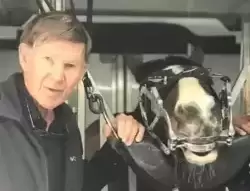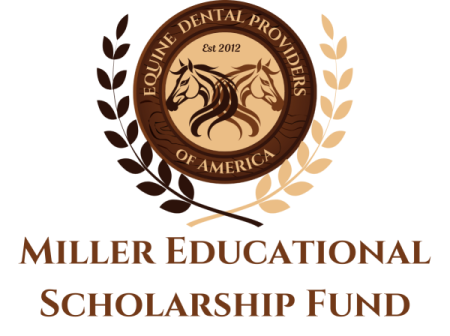
Become Certified
Our primary goal is to promote qualified care through proper techniques, resources and continuing education for the betterment and health of the horse.
EDPA Certification
The EDPA Certification is a Texas State Veterinary Board approved testing process in order to verify a provider’s knowledge and skill of practicing equine dentistry. Before becoming licensed in Texas, applicants who pass Certification may then apply for the state licensing exam. The state licensing exam includes jurisprudence questions related to the Veterinary Licensing Act (laws), and Licensing Rules (Chapter 571) and Rules of Professional Conduct (Chapter 573). The EDPA Certification is also approved by Oklahoma and Minnesota State Veterinary Boards.
The EDPA Certification is a 3- step process. First an applicant must pass Pre-Certification. The pre-requisites include a “Certificate of Completion” in fields of equine/animal education either as an undergraduate or graduate school, technical school, continuing education, other equine dentistry courses or an apprenticeship under an EDPA Certified Equine Dental Provider or licensed Veterinarian. Then the applicant must submit 4 Case Studies of routine dental maintenance performed and evaluated under the direct supervision of a licensed DVM. These case studies must be submitted with before and after photographs, dental charts and Supervising Vet Evaluation Form. All applications are reviewed and approved or denied by a panel of Certified Equine Dental Providers and Licensed Veterinarians in order to move forward with Certification Testing.
Second, an applicant must pass a Written Exam covering Equine Dental Anatomy, Terminology, Documentation and Charting, Diseases and Disease Control, Tools and Equipment Use and Safety, and Laws associated with the scope of practice.
Third, after passing the written exam, an applicant is then eligible to take a Practical Exam. This practice is similar to a university-style test. The Applicant will be required to evaluate 5 equine skulls. Each applicant will have 25 minutes per skull to complete proper charting, assessment of malocclusions and conditions, describe the approach and procedures to address conditions, describe proper tools used to do such, and then document aftercare and recommendations.
After successfully passing all 3 steps (below), an applicant is then considered to be an EDPA Certified Equine Dental Provider and may apply to the State for licensure. Please see the Pre-Certification Checklist & tabs below for more info on each step or contact us for further assistance.
All EDPA Certification Candidates MUST be Pre-approved prior to testing. Pre Approval Guidelines are
Pre-Certification Evaluation Requirements
1. The Applicant must fill out the application form and pay the Evaluation Fee.
*EDPA Member Evaluation Fee: $75.00
*Non-Member Evaluation Fee: $150.00
2. The Applicant must complete either “a” or “b”:
- A. Provide a “Certificate of Completion in fields of equine/animal education.
- *This can include undergraduate or graduate school, technical school, continuing education courses, or other equine dentistry courses.
- A. Provide a “Certificate of Completion in fields of equine/animal education.
**NOT ALL Equine Dentistry Schools or Programs are approved sources of education for EDPA Certification! – Contact the office for further information
- B. Apprenticeship
- *Applicant must complete an apprenticeship under the supervision of a veterinarian or an EDPA Certified equine dental provider. Applicant must provide the EDPA Pre-Certification Apprentice Evaluation Form signed by the referenced supervisor.
- B. Apprenticeship
3. Candidate cannot apply for certification until they have spent at least 80 hours (post dental schooling) in an apprenticeship with a Certified Equine Dental Provider or Veterinarian.
Your 80 hours can be obtained with more than 1 person.
Mentor(s) MUST provide a Certificate of Completion with the hours listed.
This time can be useful to get your 20 work history log charts.
4. Applicant must have references and letters of recommendation for two (2) horse owners as well as two (2) additional veterinarians.
5. Case Studies: Case Studies are representative of a LIVE HORSE PRACTICAL TESTING.
Cases must show that you have consistency in your work and understand the scope of your practice. Only submit your BEST WORK!
All Cases Studies must be obtained legally based on that States Law/ Requirements AND have ALL of the Owner’s and Veterinarian’s information included with Signatures.
Age Range Requirements:
- 2 – 10 years old – 1 case
- 11-20 years old – 1 case
- 20 + years old –1 case
- Any age of your choosing – 1 case
ALL cases must be submitted with a Chart, EDPA Pre-Certification Supervising Veterinarian Evaluation Form, and required pictures, properly labeled!
*** The Supervising Veterinarian for your photo cases MUST be one of your Veterinarian References
Cases are to be submitted in the following order for each horse:
- Chart – Applicant must have ALL Case Charts signed by the supervising veterinarian.
- Vet Evaluation Form –MUST be filled out for EACH horse. The Supervising Vet is to be present and evaluate each and every case and must sign both the evaluation form and chart for that horse. The vet may be contacted by the Director of Certification after the cases are submitted. Here is EDPA Pre-Certification Requirement Letter to Veterinarians.
- Pictures: Can be submitted either with “Before” Pictured LABELED on 1 page and then “After” Pictures LABELLED on the 2nd page OR submitted side by side LABELLED: Before and After. There is a sample case study below for reference. *****Submit ONLY Clean and Clear color pictures and only your BEST cases.
Each Case Study must pass with a 90%
Cases will be reviewed by 3 evaluators: Certification Director, Veterinarian, and a Certified EDP
The case evaluations, by the team of Evaluators, will be determined by the following categories:
Each Case is worth 50 points for a total test of 200 points (4 Cases). Each case study must pass with a 90% or 45/50.
1. Complete and Proper charting with legible writing (5 points)
2. Clear and properly labeled photos (10 points)
3. Assessment of malocclusions and identifiable conditions (15 points)
4. Describe approach and procedure to address conditions (15 points)
5. After Care/Recommendations (5 points)
5. Applicant MUST provide a Work History Log containing 20 of their past cases (REQUIRED)
Charts MUST contain the following information:
- Complete and Detailed charts of horses you have done. (Legally performed by state requirements) **This will show your work consistency.
- Show your understanding of “everyday seen” cases with different degrees of difficulty
- Contain Sedation notes by the owner or supervising vet with signature
- Chart MUST be signed by your Mentor or Supervising Veterinarian. This shows that they have reviewed your work and passed it. (Signer must be one of your letters of recommendation
- Have Complete information containing the contact information of the Veterinarian and/or Owner. The Certification Director MAY call on the owners/vets for case study verification
6. Documentation also to include (if applicable):
Equine Dental Workshops/Shadowing Completions
Equine-Related Continuing Education
Applicant must have ALL necessary Documentation, Case Studies and Work History Log to the EDPA before the evaluation process will begin.
***MISSING INFORMATION WILL RESULT IN THE FAILURE OF THAT CASE STUDY. NO EXCEPTIONS!!
The EDPA has 30 days to review the application and respond with approval or
denial with recommendations to the applicant.
~~~~~~~~~~~~~
Once the applicant has received EDPA Pre-Certification Evaluation Approval, the applicant may then sit for the EDPA Certification Written Test. See the EDPA Certification Test Guidelines for more details.
For questions or more information, contact the EDPA Certification Director or the EDPA Office:
*Approved Pre-Certification Applicants that are EDPA Members and non-veterinarians may apply for the Miller Educational Scholarship on the Miller Scholarship tab on this page. There are 8 annual scholarships available on a first-come basis.
Once you have verified that you have all your paperwork in order, (use our convenient Pre-Certification Checklist):
SUBMIT – ALL PAPERWORK, CASE STUDIES AND WORK HISTORY LOGS CAN BE SUBMITTED ON THE APPLICATION FORM
**If you need to mail documents in, please contact the EDPA Office at office@edpaonline.org
Sample Chart for Pre-Certification Application
Please open or print this document and use it as a sample for case study submissions for pre-certification approval. This is just a sample. We require all case studies to include a completed dental chart with appropriate pictures labeled with EDP Name, Case #, and before and after. For more information contact us
Please DOUBLE check your work and be sure you have all your documents in order
This scholarship is intended for non-veterinarians who have gone through EDPA approved schooling and/or apprenticeships and have passed the EDPA Pre-Certification Testing. **First certification only** The EDPA Certification Process is a 3-step process that once completed allows applicants to apply for state licensure. Please see our Certification page for further details. Licensed Equine Dental Providers must attend continuing education courses annually in order to maintain their licensure. The Miller Educational Scholarship Fund is dependent fully on donations to cover the expenses of Certification Testing. The more affordable this process can be made; the more licensed equine dental providers can enter the equine industry and better serve the horses and owners.
The Miller Educational Scholarship Fund is named in recognition of Dr. Richard Miller. Dr. Miller graduated with highest honors from the Washington State School of Veterinary Medicine in 1961. For the next fifteen years, he practiced in Lexington Kentucky, in a primarily reproductive and pediatric practice with a good mix of sport horse issues, as he was also involved in polo and fox hunting. He operated Summerhill Farm in Lexington, as a combination breeding, foaling and training program, before moving to Southern California to join the Equine Medical Center in Cypress Ca. The next eleven years were occupied by an exclusive racetrack practice at Los Alamitos and Bay Meadow. In 1987, Dr. Miller decided to retire from the track and dedicate his practice to equine dentistry.
Until his passing in 2021, he served an area from San Diego to Sacramento, with a 28 ft. mobile clinic that was a full-service unit, staffed by him and two technicians. Dr. Miller significantly participated in the equine dental associations for the majority of his career. He also had an advanced certificate in equine dentistry by the International Association of Equine Dentistry and Certified by the Equine Dental Providers of America. He served on the EDPA Certification Committee and in 2017, the EDPA published the “Miller’s Digest of Equine Dental Cases,” a book of case studies Dr. Miller supplied over the course of 4 years for the EDPA website.
Dr. Miller dedicated most of his professional life sharing his knowledge and expertise with others. He took several apprentices each year and they were able to have hands on experience and side by side instruction of equine dentistry. Many of his students and graduates of his program are now practicing equine dentistry all over the World! Dr. Miller played an integral part in the EDPA Continuing Education and Certification since its inception. Dr. Miller traveled the world to veterinary and equine dental conferences continuing to learn and teach others.
There will be EIGHT Annual Scholarships for EDPA Certification Applicants that are members of the EDPA and have passed the Pre-Certification process. These scholarships are not available to veterinarians and will be awarded on a first come first basis.
Miller Scholarship recipients are only eligible to take the Certification test one time. If the recipient fails Certification, they must pay to retest.
To learn more or to donate to the Miller Educational Scholarship Fund, please contact the EDPA Membership Director

Miller Scholarship Application
The EDPA Certification Testing is held at the Annual EDPA Conference in Katy, Texas.
Deadline for Pre-Certification is September 1, of the current year.
Certification Test Guidelines
After completion and approval of the EDPA Pre-certification Evaluation, an applicant may apply for the EDPA Equine Dental Provider Certification. The Certification Test will be held annually. Texas resident applicants have first option for certification testing within the deadline set by EDPA.
The Applicant must register for the EDPA Certification Test and pay the applicable fee by EDPA posted deadline to be eligible to test in the same year.
* EDPA Member Fee- $500.00
* Non- Member Fee- $650.00
Applicants for Equine Dental Provider (EDP) Certification must pass a written exam and a practical exam for EDPA Certification.
EDPA Written Test Resources and Study Guide,
EDPA Certification Test Guidelines
The EDPA Certification Written Test will include questions regarding the following
1. Anatomy, including musculoskeletal structures, organs of the head and neck
2. Tooth anatomy and morphology
3. Diseases that show up in the mouth so that an (EDP) would know when to refuse to treat and send the case to a vet.
4. Knowledge of tools, function and hazards of equipment and instrumentation used in tooth floating
5. Potential harm and side effects caused by tooth floating, and possible results of poor tooth floating technique.
6. Disease control and sterilization of equipment
7. The limits of the scope of practice for an EDP, including the use of sedation, the requirement of veterinary supervision, and ensuring that a proper veterinary-client-patient relationship is established and maintained
8. Universal terminology
9. Texas law
10. Documentation- Charting
The applicant has one hour to complete the test and must pass the written test with 90% or above before eligible to move on to the EDPA Practical Exam.
*If the applicant fails the written test, the applicant has the opportunity to retake the test the following year (and only the following year) without additional cost.
The EDPA Practical Exam will follow the EDPA Written Exam and will consist of the following:
EDPA Certification Practical Test Procedure
*All Practical Test Applicants must have passed the EDPA Written Test prior with an 90% or better.
All Applicants will be given a Practical Testing Time to be at the approved testing site. The applicant must correctly chart and address the skull’s pathology.
The following steps will be followed for the EDPA Certification Practical Test
1. The skulls to be used will have variable routine dental conditions. There will be a total of 5 skulls to be charted and evaluated by each applicant.
2. Up to 5 Certification Testing Applicants will test at the same time. Each Applicant will have 25 minutes per skull to evaluate. A maximum of 3 testing sessions per day with a total of 15 applicants per day in 3 hour intervals.
3. The Team of Evaluators will access each skull prior to testing. The EDP Evaluators will chart the skull noting the dental issues using the EDPA Certification Evaluator Chart. All Evaluators will compare and agree on the skull pathology and assessment pre-test.
4. After all Pre-test Evaluations are completed. The Evaluators will leave the test area and will not return until all applicants are completed.
5. The Certification Director will be present during the entire Practical Testing process.
6. The Applicants will be assigned a skull to start the testing. The applicant will rotate to the next skull station when directed by the Director. The applicant will have a separate chart per skull. The applicant has 25 minutes per skull station to complete each chart. The total time for the Practical Exam is 2 hours.
7. The Applicant is to chart the skull using the EDPA Certification Test Dental Chart. The applicant must correctly chart the conditions in the skull’s oral cavity. The Applicant is to then address the issues in writing with appropriate tool usage and detail all on the appropriate skull chart.
8. When applicant is completed with addressing dental issues, it is expected the applicant will do post evaluation of the skull and after care instructions.
9. The Applicant then must turn in their EDPA Certification Test Dental Charts for all 5 skulls to the Certification Director and leave testing location.
10. When all Applicants are completed (or 2 hour time limit has expired), all applicants must leave the testing site.
11. The Team of Evaluators will review each skull chart per applicant comparing the Pre- Evaluation Chart to the Applicant’s Test Chart. The Evaluators must determine if the applicant addressed the malocclusions while preserving functionality of the oral cavity, and practicing the policy “to do no harm” by the following standards:
To remove sharp enamel points which cause harm to soft tissue.
To remove malocclusions which interfere with occlusion and lateral excursion, of the molars and incisors.
And to maintain and maximize occlusion of the opposing chewing surfaces
Overall balanced and functional mouth.
12. The Evaluators will then score each applicant on the following categories and point scale: Test= 250 total points with a Pass/Fail Scoring:
- The evaluation by the team of Evaluators will be determined by the following categories:
- Each Skull is worth 50 points for a total practical test of 250 points (5 skulls).
Proper charting with legible writing (5 points)
Assessment of malocclusions and identifiable conditions (15 points)
Describe approach and procedure to address conditions (15 points)
Describe tools used for approach and procedures (10 points)
After Care/Recommendations (5 points)
The EDPA Certification Applicant must pass the Practical Exam with an 80% or better.
13. The Certification Director will award in writing via mail/email within 14 days Certified EDP Certificates to the applicants that passed the EDPA Certification and notify any who failed.
The skulls will be charted by a team of evaluators and the applicants work will be evaluated by the team. The team will consist of the EDPA Director of Certification, one (1) Certified EDPA member and one Texas Licensed DVM and these team members are those which have no conflict of interest associated with the candidate’s testing.
*If the applicant fails the practical test, the applicant has the opportunity to retake the test the following year (and only the following year) without additional cost, unless applicant is a recipeint of the Miller Scholarship (applicant will have to pay to retest).
For more information regarding the EDPA Certification Guidelines or Exam, For more information please contact the EDPA office.



